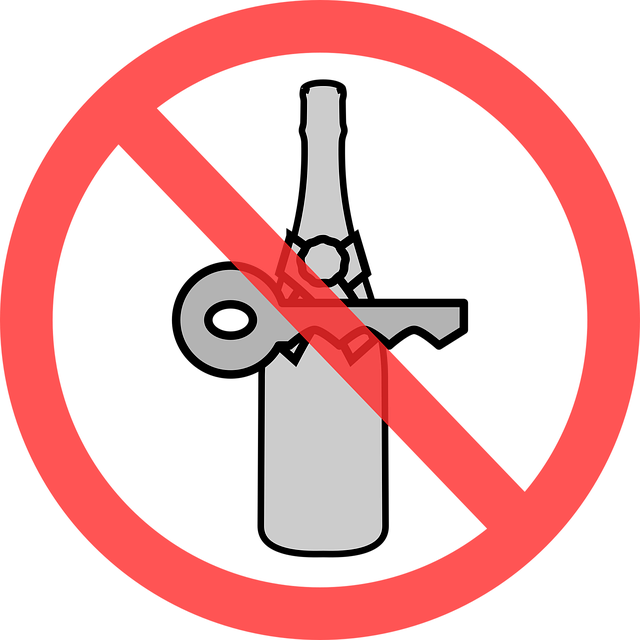In rural areas, a DUI arrest presents unique challenges with insurance adjustments due to limited law enforcement resources and dispersed populations. Insurance companies view DUI convictions as major risk factors, leading to higher premiums or difficulty finding coverage. Rural Community DUI Prevention programs offer crucial guidance through the legal process, assist with insurance-related matters, and help individuals regain driving privileges. These programs focus on education, tailored support systems like counseling, and alternative transport options, fostering safer and more resilient rural communities. By mitigating the impact of impaired driving, these initiatives tackle economic hardships and social isolation often faced by rural residents after a DUI conviction.
After a DUI arrest, navigating insurance adjustments can be complex. This article delves into the intricacies of post-DUI insurance adjustments, focusing on the unique challenges faced by residents of rural communities. We explore the impact of DUIs in these areas and provide essential strategies for prevention. Understanding the claims process and long-term effects is crucial for both offenders and their communities. By following these steps, folks can foster safer rural environments, revolutionizing the landscape of DUI prevention.
- Understanding Insurance Adjustments After a DUI Arrest
- The Impact of a DUI on Rural Community Residents
- Navigating the Claims Process: Steps to Take
- Long-Term Effects and Prevention Strategies for DUI Offenders in Rural Areas
Understanding Insurance Adjustments After a DUI Arrest

After a DUI (Driving Under the Influence) arrest, many individuals in rural communities face unique challenges when it comes to their insurance adjustments. In these areas, where populations are often more dispersed and law enforcement resources may be limited, the aftermath of a DUI can significantly impact access to affordable coverage. Insurance companies typically assess risk when determining premiums, and a DUI conviction is seen as a major risk factor. This can lead to higher premiums or even difficulty finding insurance providers willing to cover them.
Understanding these adjustments is crucial for individuals looking to navigate their options post-DUI arrest. Rural Community DUI Prevention programs often emphasize the importance of responsible drinking and offer resources to help those affected by DUIs make informed decisions. These programs can guide individuals through the legal process, as well as assist with insurance-related matters, ensuring they stay on track towards reinstatement of their driving privileges and obtaining adequate coverage for their vehicles.
The Impact of a DUI on Rural Community Residents

For rural community residents, a DUI (Driving Under the Influence) conviction can have disproportionate and lasting effects. These communities often lack the dense infrastructure and resources available in urban areas, making access to transportation alternatives more challenging. As a result, individuals facing DUI charges may struggle to maintain their daily routines, including commuting to work or accessing essential services, potentially leading to economic hardships and social isolation.
Moreover, Rural Community DUI Prevention initiatives are crucial here. Educating residents about the risks and consequences of impaired driving is essential. These efforts should be tailored to address cultural norms and unique challenges faced by rural communities. Implementing robust support systems, including access to counseling and alternative transportation options, can help mitigate the impact of a DUI on these vulnerable populations, fostering safer and more resilient rural communities.
Navigating the Claims Process: Steps to Take

Navigating the claims process after a DUI (Driving Under the Influence) arrest can be daunting, especially for those living in rural communities where access to legal resources might be limited. The first step is to gather all necessary information related to the incident and your insurance policy. This includes understanding the specific clauses regarding DUI convictions and the associated coverage implications.
Rural Community DUI Prevention initiatives often emphasize education and support for at-risk individuals. So, it’s crucial to reach out to these local programs for guidance. They can assist in explaining the legal and insurance-related steps required post-arrest, ensuring you’re aware of your rights and obligations throughout the claims process.
Long-Term Effects and Prevention Strategies for DUI Offenders in Rural Areas

The long-term effects of a DUI (drunk driving) conviction can be particularly impactful in rural communities, where social support networks and access to resources may be more limited compared to urban areas. Offenders often face unique challenges such as longer travel distances to court appointments, fewer specialized rehabilitation programs available, and potential isolation from support systems. These factors can contribute to higher rates of recurrence and increased strain on the already limited resources within these communities.
To address Rural Community DUI Prevention, multifaceted strategies are necessary. Enhanced access to counseling and support groups tailored for rural residents can help offenders manage addiction and cope with the pressures that may lead to future impaired driving. Additionally, community-based initiatives that foster open dialogue about the dangers of drunk driving and promote responsible drinking culture can make a significant difference. Collaboration between local law enforcement, healthcare providers, and community leaders is crucial in implementing effective prevention programs that resonate with the unique needs and characteristics of rural communities.
In conclusion, managing insurance adjustments post-DUI arrest is a complex process that varies based on location, especially for residents of rural communities. Understanding the impact of a DUI on these areas highlights the need for tailored prevention strategies. By navigating the claims process and recognizing long-term effects, former offenders can take proactive steps to regain financial stability and contribute positively to their rural communities. This multifaceted approach, combined with community support, is crucial in promoting safer driving practices and mitigating the ripple effects of a DUI. Through education and accessible resources, we can foster a culture of responsible drinking and rural DUI prevention.






